MCIE Resources
Staff Picks
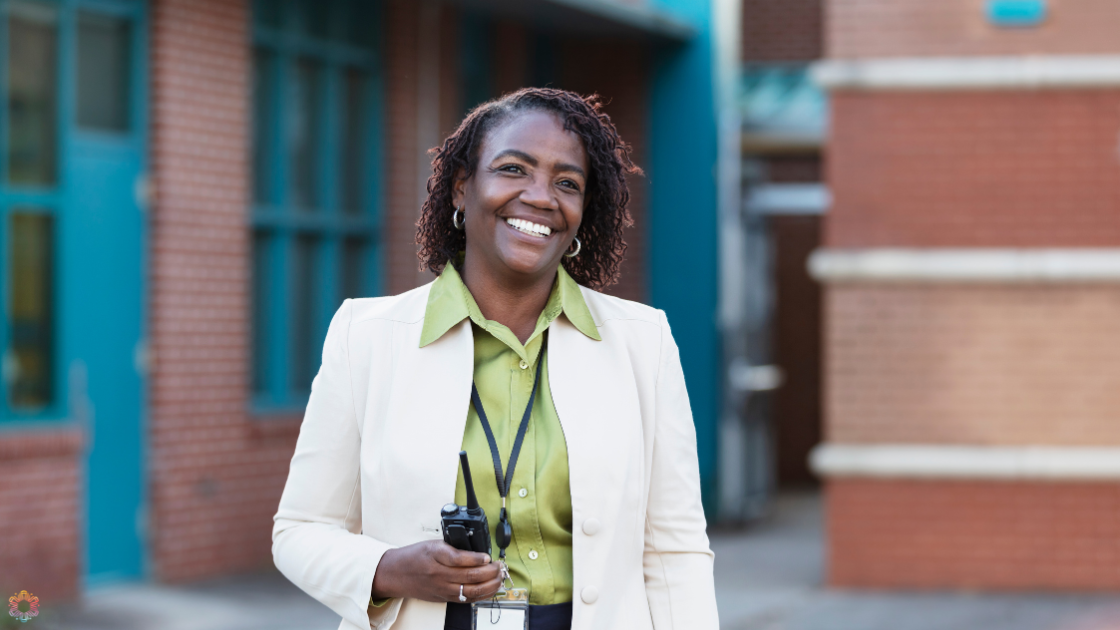
Inclusive Principal Leadership in MTSS
This document offers school leaders background context and self-assessment tools for implementing a Multi-Tiered System of Supports (MTSS) for all learners, including those receiving specialized services, by cross-referencing MTSS components with research-based Principal competencies to improve student outcomes.
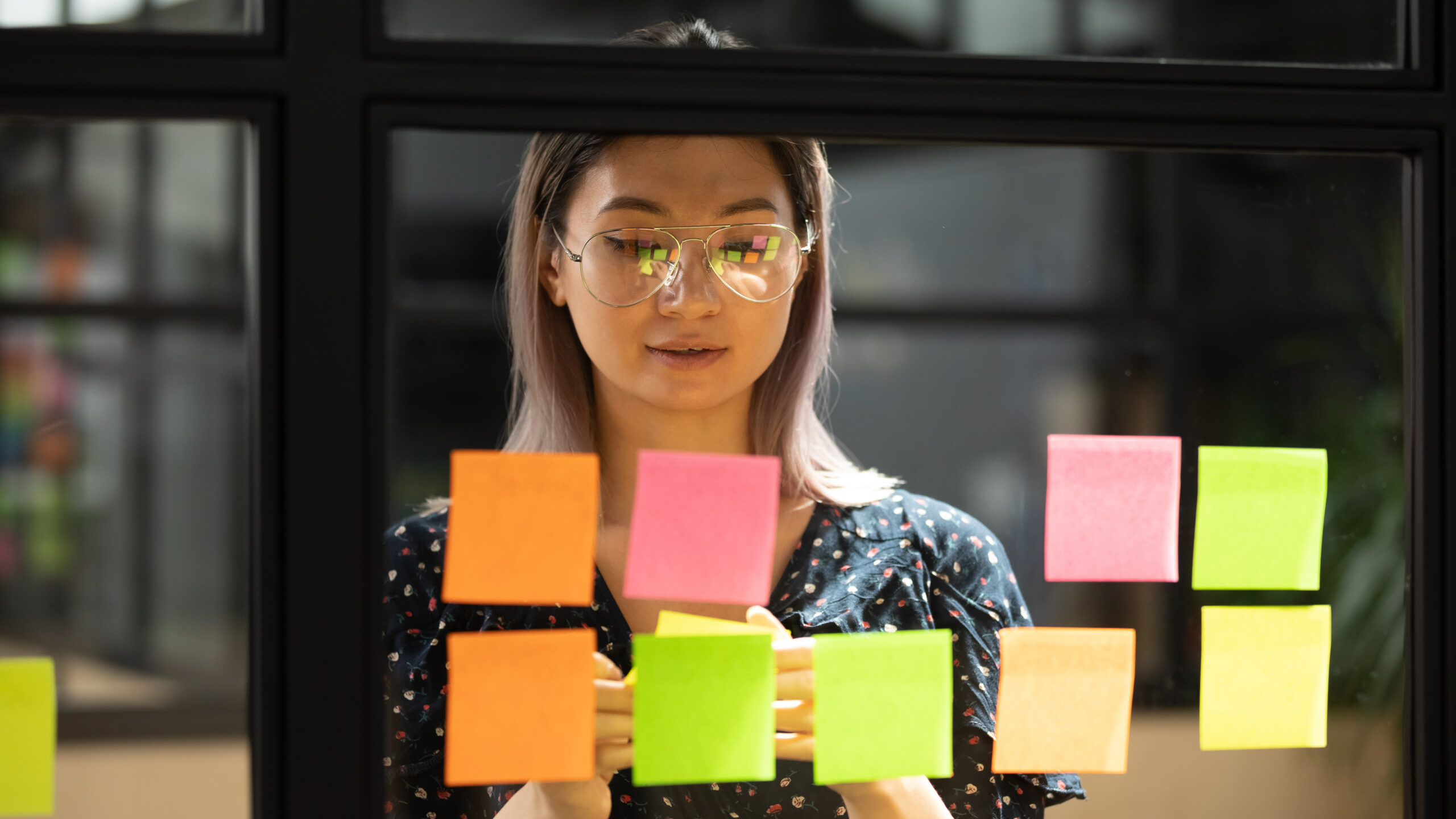
Specially Designed Instruction and More
The foundation for effective special education is the quality and use of research-based curricula and instruction in the general education classroom.
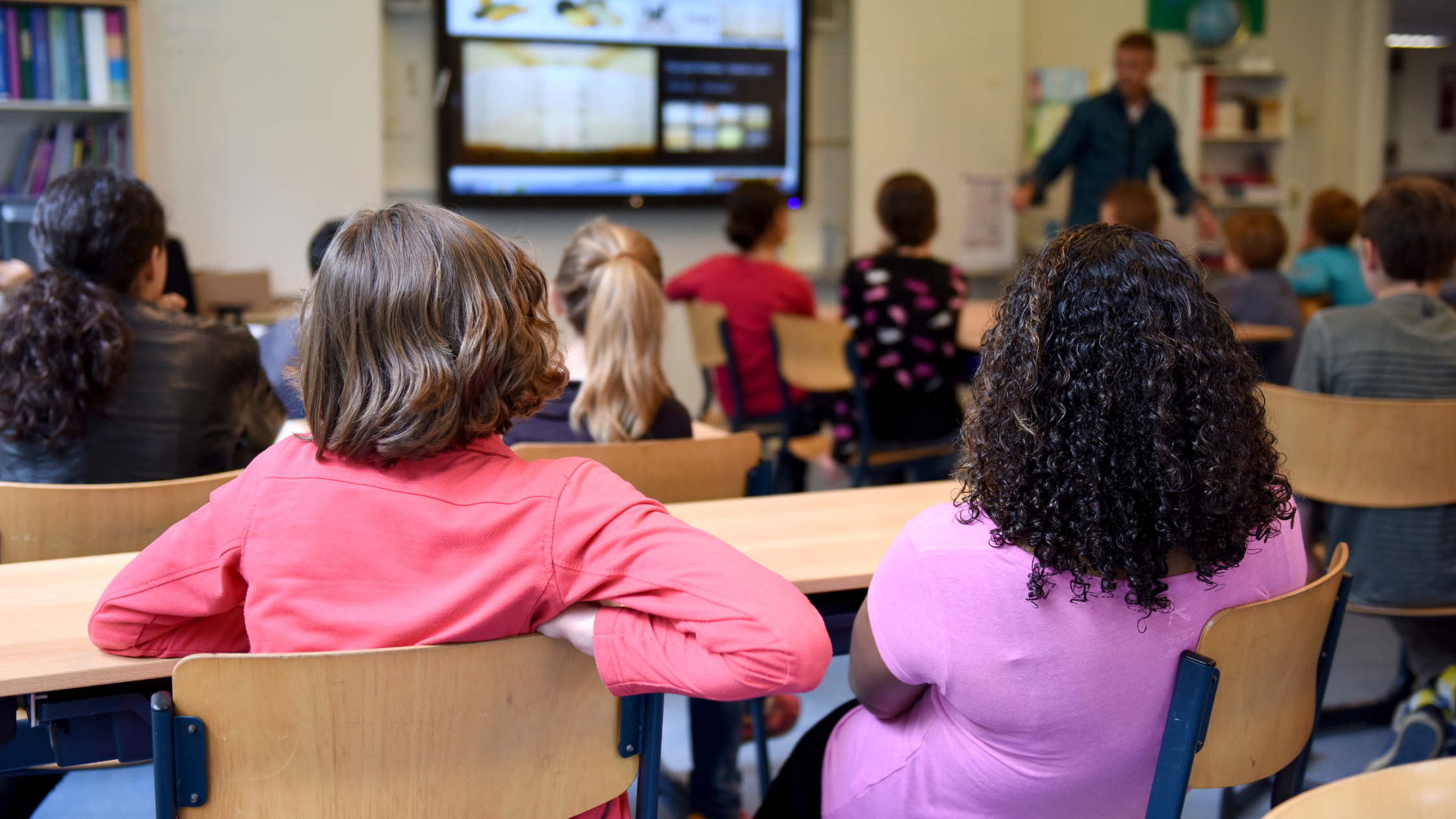
Evidenced-Based Instructional Practices
This resource provides a list and short description of instructional practices that have been proven to be effective for all learners in the general education class. These practices provide the foundation for specially designed instruction: adapting effective lessons so that learners with disabilities participate and learn grade level standards.
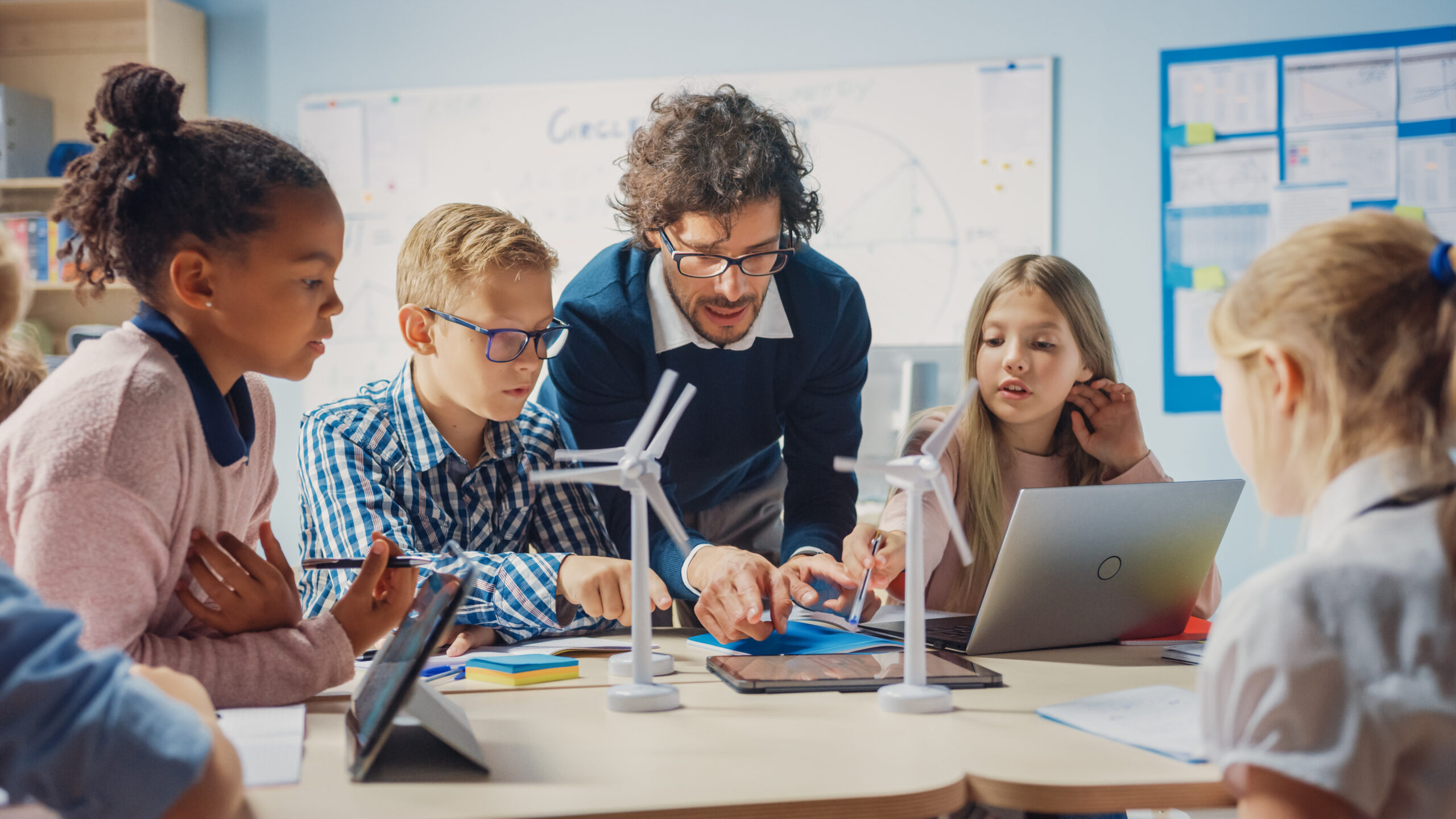
Paraprofessional Roles and Responsibilities
A primary responsibility of general and special educators is to teach children and youth academic content and learning strategies. This document provides guidance for paraprofessional roles as classroom support staff...

Inclusion Conversation Starters
If you are an educator who wants to move authentic inclusive education forward in your school or district, here are five ways you can get a conversation started right now to identify changes you can make.
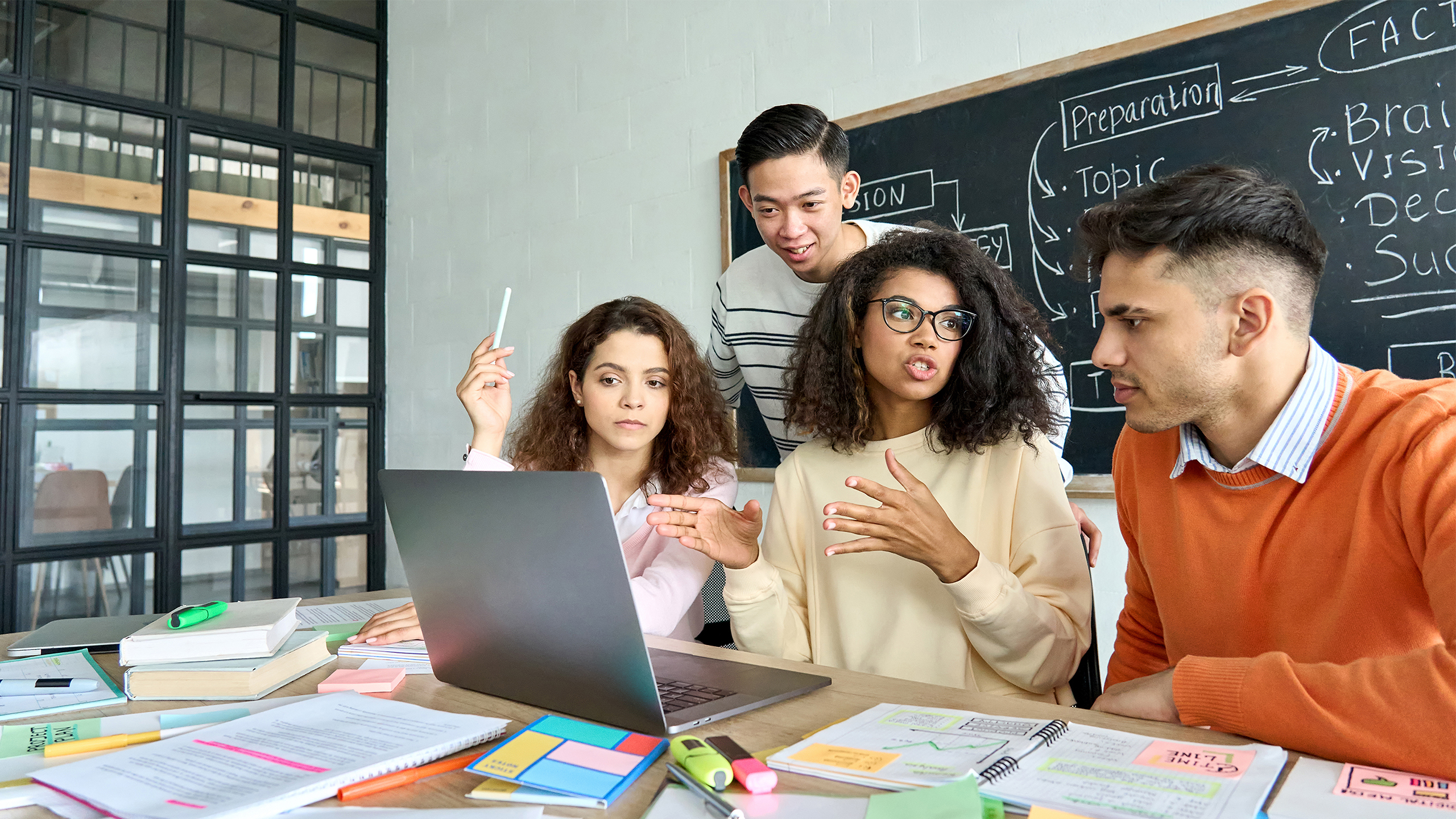
Collaborative Relationships
Collaborative relationships are all about working together to achieve a common goal. This brief discusses the types of collaboration that educators may experience and defines co-teaching models and how they are used.
Additional MCIE Resources
Topical Resources
Staff Picks
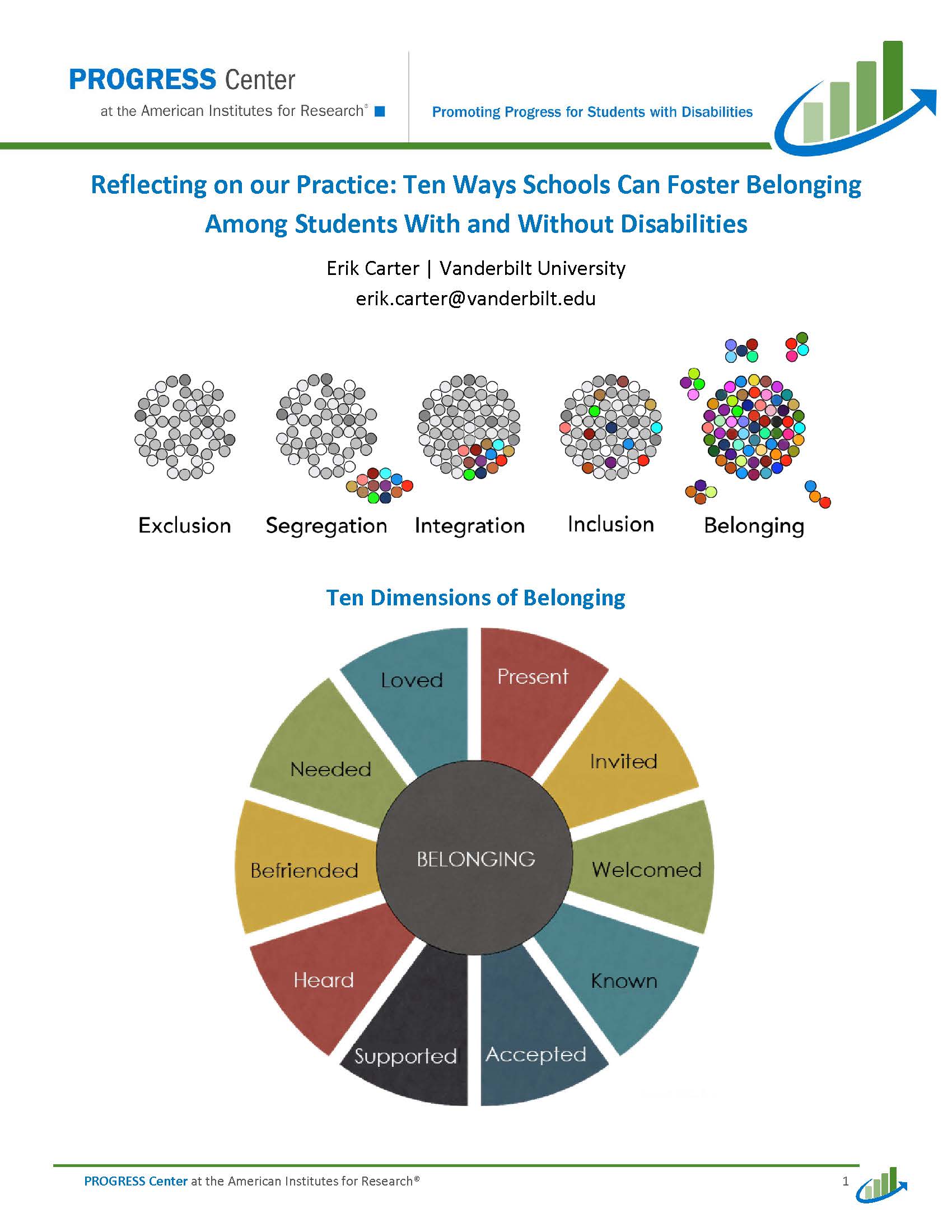
Fostering Belonging 2021
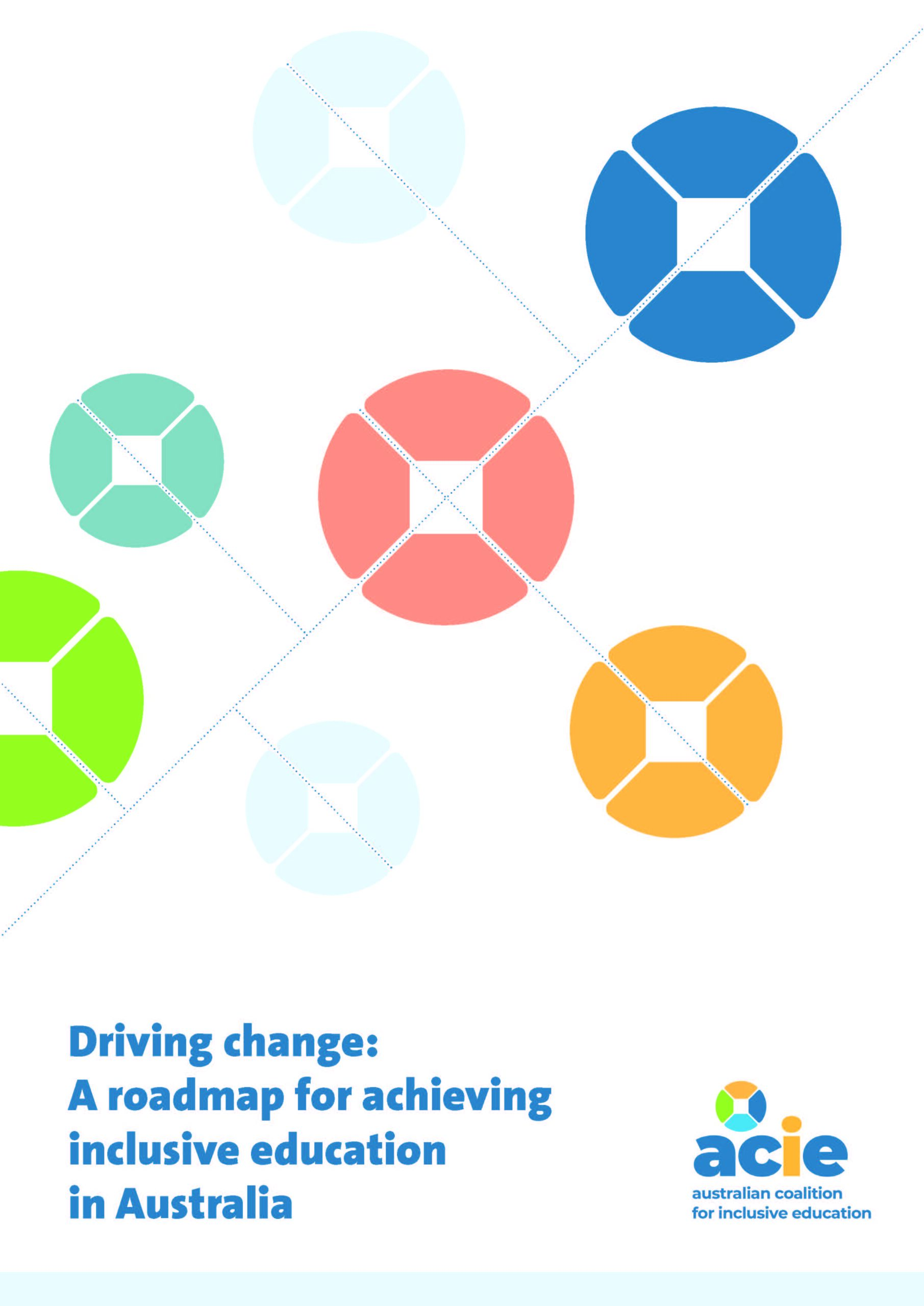
Roadmap for Inclusive Education-Australia 2020
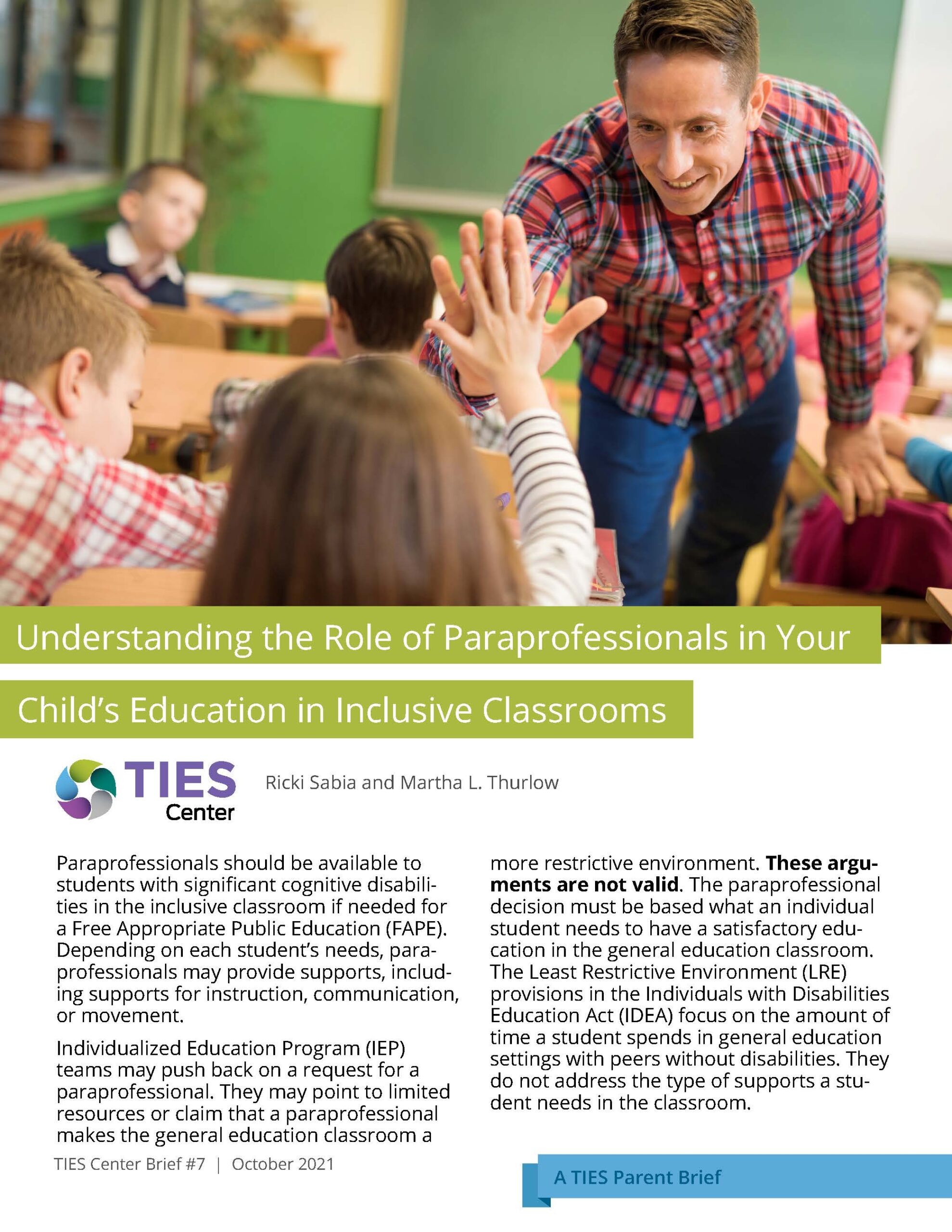
Understanding
the Role of Paraprofessionals
Additional Topical Resources
Helpful websites we trust
All Means All
is the Australian Alliance for Inclusive Education, a nationwide multi-stakeholder alliance working to implement an inclusive education system and remove the legal, structural and attitudinal barriers that limit the rights of some students, including students with disabilities, to access full inclusive education in regular classrooms in Australian schools.
Council of Parent Attorneys and Advocates, Inc. (COPAA)
is a nonprofit organization of attorneys, advocates, parents and related professionals who work to protect the legal and civil rights of and secure excellence in education on behalf of tens of thousands of students with disabilities and their families each year at the national, state and local levels.
National Inclusion Project
works with community organizations and recreational programs, providing them with the training, tools, and support they need so that children with disabilities can be included in all of their activities and programs.
PEAK Parent Center
is a nonprofit that has been serving families and self-advocates across the State of Colorado, and beyond, since 1986 to ensure that all people with disabilities are fully included in their neighborhood schools, communities, employment, and all walks of life.
TASH
is an international leader in disability advocacy that advocates for human rights and inclusion for people with significant disabilities and support needs – those most vulnerable to segregation, abuse, neglect and institutionalization. They work to advance inclusive communities through advocacy, research, professional development, policy, and information and resources for parents, families and self-advocates.
CAST
is a multifaceted organization that aims to bust barriers to learning that millions of people experience every day. They help educators and organizations apply insights from the learning sciences and leading-edge practices to educational design and implementation.
Educating All Learners Alliance
is working to create community, coalesce conversations, and curate resources to serve all learners during the COVID-19 pandemic.
Inclusive Schooling
co-founded by Julie Causton, PhD and Kate MacLeod, PhD, offers live and online courses, workshops, presentations and innovative support focused on creating and supporting more inclusive schools.
Ollibean
is a dynamic community of parents, families and advocates in the disability community working together for a more socially just, accessible and inclusive world.
Starting with Julius
works with social media, traditional media, and companies to positively influence marketing messages and raise consciousness about representation and portrayal of disability.
The Inclusive Class
offers and promotes strategies for teaching in an inclusive classroom.
Think College
is a national organization dedicated to developing, expanding, and improving inclusive higher education options for people with intellectual disabilities. With a commitment to equity and excellence, they support evidence-based and student-centered research and practice by generating and sharing knowledge, guiding institutional change, informing public policy, and engaging with students, professionals and families.
Center on Inclusive Education
at the University of New Hampshire, Institute on Disability, promotes a variety of professional learning opportunities and a vision for including all learners.
Include Me
provides on-site, intensive training and technical assistance to school districts, teachers, and families in Pennsylvania to increase their capacity to educate students with significant disabilities in general education classes and typical preschool settings.
IRIS Center
offers a wide variety of resources and services to suit a diverse set of instructional needs and circumstances.
Open Books Open Doors
provides free literacy screenings for Connecticut children with Down syndrome in pre-school through grade 3 as well as resources for parents and teachers on best practices in literacy instruction for students with Down syndrome.
Supporting Inclusive Practices
provides tiered technical assistance to local educational agencies (LEAs) focused on building, implementing, sustaining, monitoring, and scaling up evidence-based practices within integrated educational systems to increase inclusion of PreK – 22 age students with disabilities in general education settings.
TIES Center
is a national technical assistance center on inclusive practices and policies. It works with states, districts, and schools to support the movement of students with disabilities from less inclusive to more inclusive environments.
Center for Parent Information & Resources
is the central “hub” of information and products created for the network of Parent Centers serving families of children with disabilities.
Inclusion Press
is a collection of articles, videos, books – resources that summarize both the evolution and practice of inclusion – as told by many of the key authors and developers of Person Centered Practices – Circles of Support, MAPS, PATH, and more.
Kids Together, Inc.
is an all-volunteer organization dedicated to promoting inclusive communities. Their goal is to remove barriers that exclude people with disabilities by supporting the belief that children with disabilities, like all children, have the need to be welcomed, cherished and embraced in our communities.
Paula Kluth
is a consultant, author, advocate, and independent scholar who works with teachers and families to provide inclusive opportunities for students with disabilities and to create more responsive and engaging schooling experiences for all learners.
SWIFT Education Center
is a national technical assistance center that builds whole system capacity to improve outcomes for all students. They are passionate about transforming U.S. public education so that all students have a rightful presence in their school community.
Understood
is a non-profit dedicated to serving the millions of families of kids who learn and think differently. Their programs for families, educators, and young adults focus on empowering people who learn and think differently and those who support them, offering customized, accessible resources and a compassionate community.
